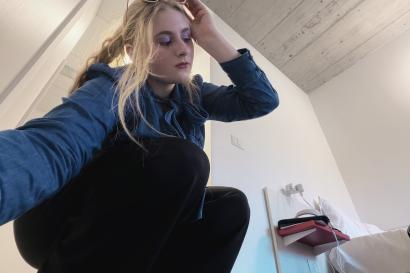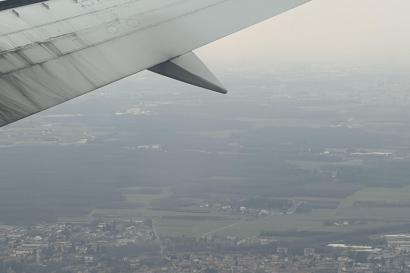At the beginning of my semester, I wrote 5 questions that I hoped I would be able to answer by the end of the semester. Naturally, nothing went as planned. The streets looked nothing like how I pictured them, and I could have never predicted the sheer uniqueness of Moroccan culture.
How will communication with the host family go?
My host mother spoke formal Arabic, which I have been studying for about 3 years, but many Moroccan families either speak French or the colloqiual Darija dialect. After a long day at school it would often be stressful and pressing to communicate with the same couple verbs I had mastered. My roommate and I would switch off on telling our family when we wouldn't be home for dinner or if we were traveling for the weekend. It was frustrating at times to not be able to ask more things about my family's personal lives, but I got to know our 18 year-old sister pretty well by the end of the program. Taking a colloquial Darija class was also an amazing choice because locals would get really excited when I could communicate without formal Arabic or French.
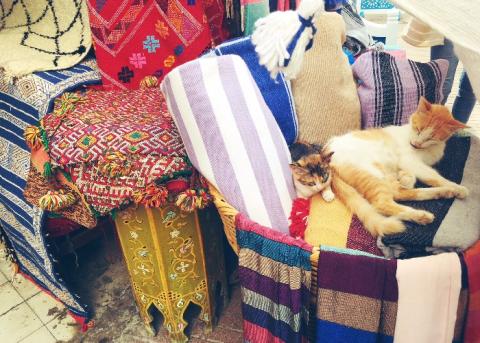
Some of my best memories at home are from my host mother teaching my roommate and I to make traditional Moroccan cuisines. It gave me a chance to study food vocabulary and to get to know my host mom a little more. All in all, the language barrier ended up being quite large between my roommate and our family, but every day was a new learning adventure that I already greatly miss upon being home.
How do I bargain/act like a local at the souk?
I never ended up mastering bargaining at the local markets, but my friends on the program sure did! I always tried to find a French speaker to shop with. The best advice for when I was alone, however, is to ask a local friend, teacher, or program director about how much I should pay for something. Then I would use my bargaining vocabulary from my Darija class (we did a whole unit just on bargaining!) and I would insist on the price another local Moroccan told me previously. Bargaining for taxis from the airport was always a huge hassle also, especially after being so exhausted from a weekend trip. I miss chatting with locals, but I am thrilled to have fixed prices again in the States!
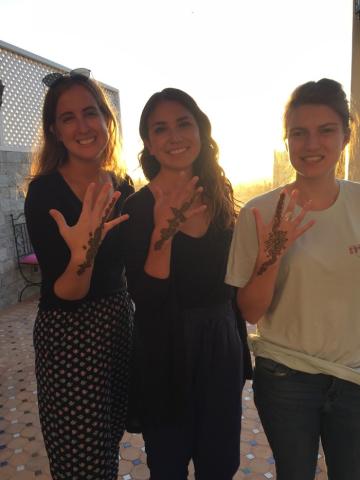
What in the world should I wear?
You can really wear whatever you want in Morocco. Honestly. One of the most frequent comments I hear from my friends these days is "Did you have to be covered all the time?!" I tried really hard to always have my shoulder and knees covered out of respect, especially around my host family or professors, even in the 100-degree weather. It didn't prove to be a very big challenge, and the locals mirror many fashion styles in the United States. For the heat, loose pants and a cotton t-shirt kept me cool and I could wear nearly any dress and just put a scarf over my shoulders if it was sleeveless. My host mom bought me a traditional djellaba to take home, and I will definitely be wearing it here!

Why do I keep hearing that catcalling is so horrible in Morocco?
The catcalling is pretty overwhelming in Morocco, but after a whole semester of walking to school I have made my peace with it. Men and women simply live very segregated lives there, and there is an absence of dating culture. Men dominate the public sphere while women dominate the private sphere. Lines are slowly crossing, but it will always look different compared to what I have grown up with. A lot of men use catcalling as a way to meet their future wives on the street because there are few other opportunities to interact with the opposite sex.
I struggled with just ignoring the comments at first. I felt silenced and constantly irate. After a couple months however, I started responding less and less. Any sort of reaction (even negative) really encourages the catcallers and it can escalate the situation to harassment. I began to notice less and less after a while and finding justification by laughing it off with other women.

How do I explain to my friends in the U.S. what I am doing?
I suppose now the question should be "How do I explain to my friends in the U.S. what I did?" I still get similar stereotypical questions and now I am working on coming up with thoughtful responses to their questions. It helps to include real-life anecdotes, for example when people ask if women are very oppressed there, I tell them about how there were more girls than boys in my weekly class at the local university. When they ask if I had basic living essentials in my host family, I tell them about my blue and white riyad in the Medina that was a beautiful palace a few centuries ago.
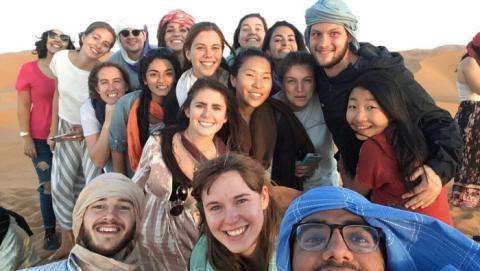
This semester presented many unique and unexpected challenges, but oftentimes the lows make the highs feel so much better. It was so important to bond with the other students in my program because we really leaned on each other and bonded in a way that maybe doesn't happen on other programs. I did not do many things alone in Morocco as a woman and sometimes longed for my independence, but it unlocked some truly special relationships and surely lifelong friendships.

Morgan Mccullough
I am a Michigan native studying Global & International Studies, Arabic, and Spanish. I am a slow traveler and I value getting lost, staying with locals, and learning new languages and traditions. This fall, I am eating my way through the amazing food of the Maghreb and asking a lot of questions about camels, how to barter, and how to say “more tea please?” in Darija





